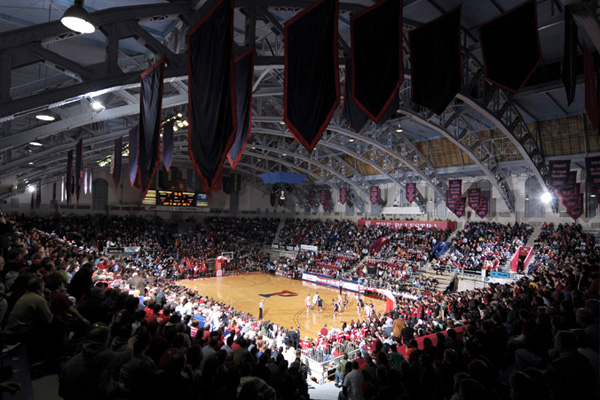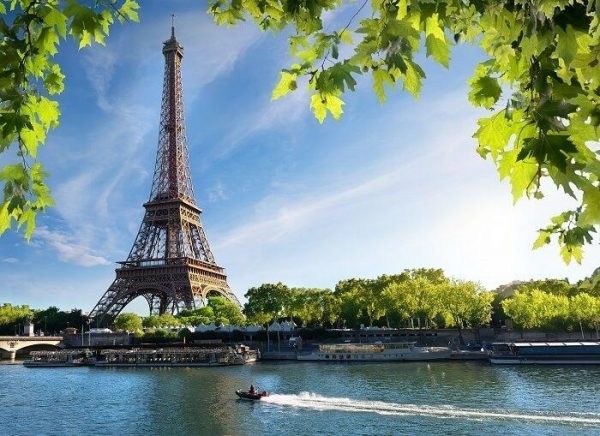ANOTHER PHILADELPHIA STORY
There were lots of kind words when I launched this web site: “I love the photos!” “Wow, you’ve covered some interesting subjects in your stories.” “Interesting perspective on Barcelona – I tend to agree.”
But what truly struck me were the words from a long-time cheesesteak afficionado who wondered why my long-delayed website, something so personal, would have nothing reflecting my love of the Phillies. Of the Eagles. And of the Philadelphia itself that in many ways I still associate with.
I began wondering about that myself, which in turn brought back many memories. Such as taking the train from Hatboro to Reading Terminal as a young teen to meet my grandmother at Wanamaker’s and then have lunch at Horn & Hardart. Or rising early one day every summer for the drive to 30th Street Station to catch the train to summer camp in the Berkshires.
Then there were the sports-related adventures – riding the bus and subway with my older brother to Broad and Lehigh, then walking the seven blocks to 21st Street and Shibe Park to revel in Sunday doubleheaders. Or getting there early to grab front-row seats at the Palestra for another doubleheader, this one a college basketball version – perhaps LaSalle vs. Notre Dame in the opener, followed by a Penn-Temple Big Five battle. The Palestra, which has the honor of being the oldest major college arena still in use today, made it easy to follow college basketball.
The Eagles were a bit harder to follow. It took more attention to follow them, though the first time I ever watched something on color TV was the 17-13 victory over the Green Bay Packers for the 1960 NFL championship. This viewing breakthrough took place at the Horsham residence of Max Hankin, a longtime friend of my Dad (and the same Max Hankin – of Hankin, Hankin, and Shanken fame – who a few years later asked my physician father to take a look at his under-the-weather house guest, Perry Como, who was in town for some sort of golf tournament).

Shibe Park

The Palestra
As for that NFL championship, Dad was particularly thrilled with the triumphant play of Hall-of-Famer Chuck Bednarik, who shared his University of Pennsylvania roots. (My brother was already at Penn himself then and my younger daughter would eventually go, and while I personally had no desire to go to college in the city, I always remind them that Penn – with such a legacy going for myself — was my safety school,)
The lights would dim a bit on our Eagles fervor, if you’re wondering, when Dad and I could only make it through the first two quarters of a regular season game the next year at Franklin Field (also on the campus of his alma mater – and my brother’s and younger daughter’s, as well – Penn). I’d like to think the windchill factor was about 5 degrees, and there wasn’t enough hot chocolate in the city to keep us in our seats. Watching the Eagles’ future December games at home, we decided, was much more enjoyable. Even for the next few years when our viewing was still in black and white.
It was disappointing not being on hand for any more Eagles home games, but nowhere near the ultimate disappointment that I (and all Philadelphians, for that matter) encountered in the fall (literally!!) of 1964. At the time, I was a member of the sports staff of the St. Petersburg (now Tampa Bay) Times, whose coverage area included Clearwater, the spring training home of the Phillies.
And the Phillies, it appeared, were headed for the World Series. The Times would traditionally rely on wire reports for its coverage, but my boss agreed to obtain World Series press credentials for me for all games in Philadelphia. But in 1964 there would be none, “thanks” to a 10-game losing streak that started when the team had a 6 ½-game lead with only 12 games remaining. It was an epic collapse that, by one account, “would etch itself deep in the city’s historical psyche.”
While Clearwater was the spring training home of the Phillies, St. Petersburg and its Al Lang Field were home to the Saints, a Los Angeles Dodgers’ farm team. That combination figured in one more Philadelphia-related experience that centered on a tryout camp hosted by the Dodgers. “Sports staffer Dave Orman,” noted the Times the next day in its coverage, “saw the potential for a first-person account. Orman, a high-school shortstop, had no real hopes of raising any Dodger eyebrows. His longtime loyalty to the Phillies reveals the fact that he wouldn’t have signed a contract anyway.”
“Raising any Dodger eyebrows” was certainly an overstatement for the little I displayed during a 4-hour session under a broiling Florida sun. A mild case of sunstroke, in fact, kept me from going to work that evening. But looking back on that, uh, “display,” one might have suspected that the thought of then-Phillies GM John Quinn seeing me in an LA uniform haunted me throughout the day.
As I concluded in that report, “Luckily, the Dodgers didn’t offer me a contract. What would I have told John Quinn?”
Another memory involves the decision of the Philadelphia Inquirer’s sports department to publish the article I wrote sitting at my Army worksite in Paris at a U.S. Army work location while listening to a Phillies broadcast on Armed Forces radio. I was working a Counterintelligence beat and, for a long time, the Army wasn’t going out of its way to let people know where I was. So I used a pen name for the article. Maybe the same “Dave Allen” – my first and middle names – that I used to write a few things for a neighborhood London newspaper during the 15 months I would later spend there.
Approaching 50 years as a West Coast resident, I now get back to Philadelphia at least once a year, maybe twice. I visit my brother and sister in Center City, but generally it’s an add-on to spend time with my daughter, her husband, and my three grandsons in the suburbs north of New York. When I am in the city, however, it’s great to get to a Phillies game, where – in the face of all nutritional advice to the contrary — you know there’s a cheesesteak or two involved.
To Paris, with Intelligence
If you could go anywhere in the world, where would you want to go?””
Even now, some 55 years after I was asked that question in a conference room at the U.S. Army’s Fort Holabird intelligence school, I keep wishing I had been more alert to the responses of the three or four officers in the room.
I was 22 years old. I had grown up in the Philadelphia suburbs and had never been farther south than Florida or east to the Jersey shore. New York City was the extent of my northern travels, and a senior-year-of-college recruiting visit to Procter and Gamble headquarters in Cincinnati marked my farthest adventure west. And my first airplane travel.
The answer to that question, of course, could have been anywhere. Just the word “Tahiti,” for example, had always conjured up some magical tropical paradise. China and India and other Asian locations weren’t even on the radar. Alaska? Why go someplace to freeze?
Then there was Paris. I had studied French in high school – two years of it, albeit with a Spanish teacher who was asked to fill in when the French teacher called in sick for the year. “It’s just another Romance language,” I can imagine school officials telling Senorita Blanca. “We’re sure you can keep ahead of the students.”
Though I never felt confident in French – could never speak it conversationally, but did develop a half-decent vocabulary – she did an okay job. Okay enough that I passed a college placement exam that allowed me to skip French 101 and move to a second-year level. My deficiencies were exposed the very first day in class — during roll call, in fact — when Dr. Butler, a nearly-native Army translator during the war, kept asking for “M’ssuh Aw-mawn.” It took more than a few nasalized moments for me to realize that was moi.


So I’m back in that Fort Holabird conference room, happily done with a few months of advanced individual training in what is now MOS 35L: the “Military Occupational Specialty” for a Special Agent, Army Counterintelligence. A week or so earlier, my classmates and I had completed our “dream sheets,” giving the Army two or three places where we would, if you please, prefer to be stationed for the next phase of our fledgling military careers.

“Dream” is the operative word here, because the Army truly doesn’t give a damn where you want to go. Instead, you’re going where they tell you to go, where they need you to go. A large number of the 20 or 25 graduates in the class before us, for example, were already on their way to Korea. Some to Germany, as well.
I would have been happy to go to Tampa, Florida. That was the base of operations for the guy in a nice suit who had visited me nine or 10 months earlier at my desk in the sports department of the nearby St. Petersburg Times. He was conducting a security clearance for some soldier somewhere and wanted to confirm some items on his application for “a position of trust and responsibility.” While I got the information he wanted, I learned that my civilian-clothed visitor was on active duty, fulfilling his military obligation as a Counterintelligence Special Agent, living in his own apartment “That’s the way I want to do it,” I thought to myself, well aware of the dread and danger my peers were encountering every day toting their rifles in Vietnam.
The draft was in full swing in the mid-‘60s. I was too straight and too heathy, and I knew my time was coming due. One thing led to another, and within the year I had enlisted for the Intelligence Corps (rather than be drafted), completed basic training at Fort Jackson, South Carolina, and now my training at Fort Holabird. I had learned how to type out specific reports, how to interview, how to track down “developed character references” (rather than just the references people list on their resumes), and how to use the reflections in store windows as part of a three-man team trailing “suspects” through downtown Baltimore. I was ready for Tampa. I may well have even put Peoria on my list.
I knew a little about the Army’s current global activities, but had never seen Tahiti listed as a critical duty station. And while I’ve become a little better over the years at reading body language and facial reactions, I have absolutely no memory of the immediate reaction of those officers in the room when I paused, then answered their question with a simple, “Paris.”
That’s where they were sending me no matter what I had said. In March 1966, after some additional training to prepare for what I’d be doing in Paris, I was on my way, though I wasn’t thrilled — given my still-lowly status — to be sitting in the middle of three beefy soldiers on a red-eye military flight from Maguire AFB to Orly Airport.
A part of me still believes, by the way, that that experience is still a factor in the focus I would develop on frequent flyer points and the consequent business- and first-class travel that followed.
Why Barcelona? Why?
I don’t access Facebook all that much at home, so it was odd to find myself in Barcelona touching base with friends thousands of miles away. I sent encouraging words to one whose wife had just had a medical scare. When he responded, hoping that all was well with me, I asked, “How bad can things be in Barcelona!” Another friend, after I mentioned where I was, hoped I was enjoying his “favorite city in the world.”
Barcelona seems to be a lot of people’s favorite city these days. Perhaps it’s because there’s a certain exotic novelty to Spain, for example, as opposed to our more familiar awareness of England and France.
Maybe it’s because the city offers a combination of bustling metropolis and seaside resort — like something you’d get if you could easily stroll from downtown LA’s museums and theaters to Santa Monica’s beaches and Third Street Promenade. And maybe it’s due to the boom in cruise vacations and the fact that Barcelona seems to be on every other Mediterranean itinerary.
Barcelona has, indeed, burst onto the international travel stage. But why?


The streets are crowded — strolling Las Ramblas at night seems to cry out for shoulder pads. The airport is busy, with poor signage and a line for VAT refunds that creates more stress than one wants at the end of a vacation
Tourists flock to the works of Gaudi, but — reflecting on a stay at a minimalist 4-star hotel without a piece of art on its stark, oak-paneled walls or a drawer to stuff some shirts in — others think his works are too, too much. Interesting, yes, but finish them already and get those dang scaffolds out of the way.
Others rave about the tapas. Slimy sardines and peppers and potatoes smack atop a crusty little piece of bread are okay for a one-time change of pace and aren’t even that costly by themselves. But the bill can get a bit out of hand when you need 6 or 7 of them to make a decent meal.
Barcelona is okay — even fun, exciting, and different. But next time, I think I’d try someplace at the other end of the country’s alphabet. Like Zaragoza.



